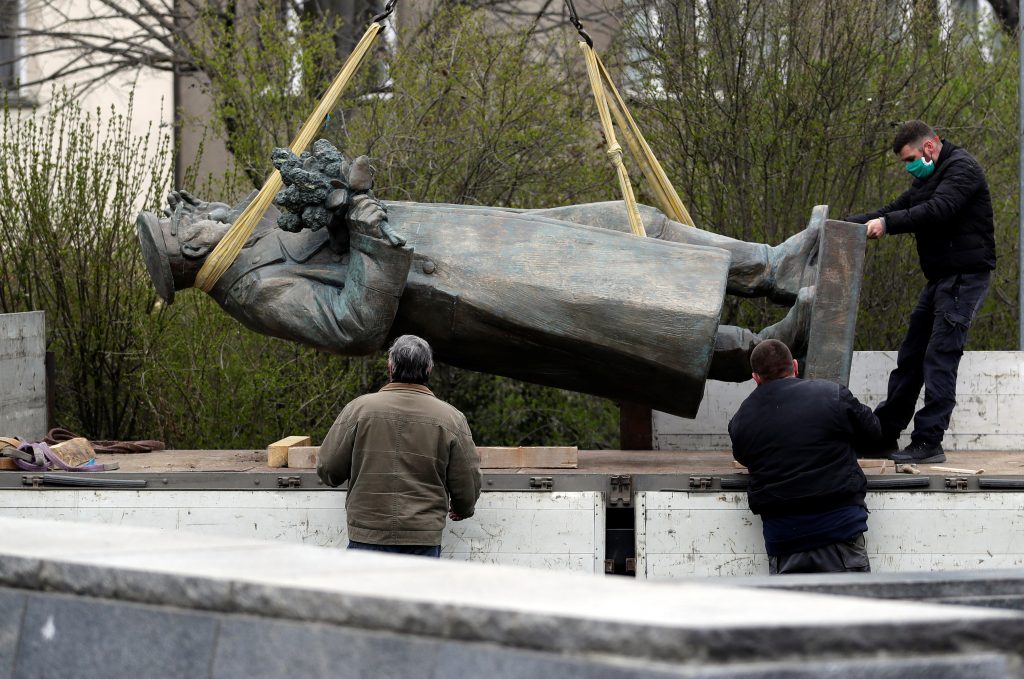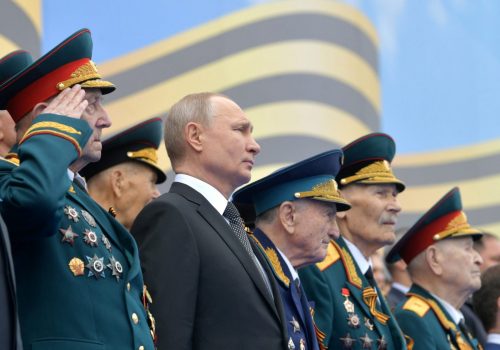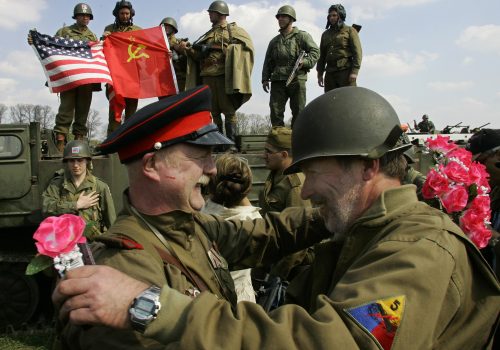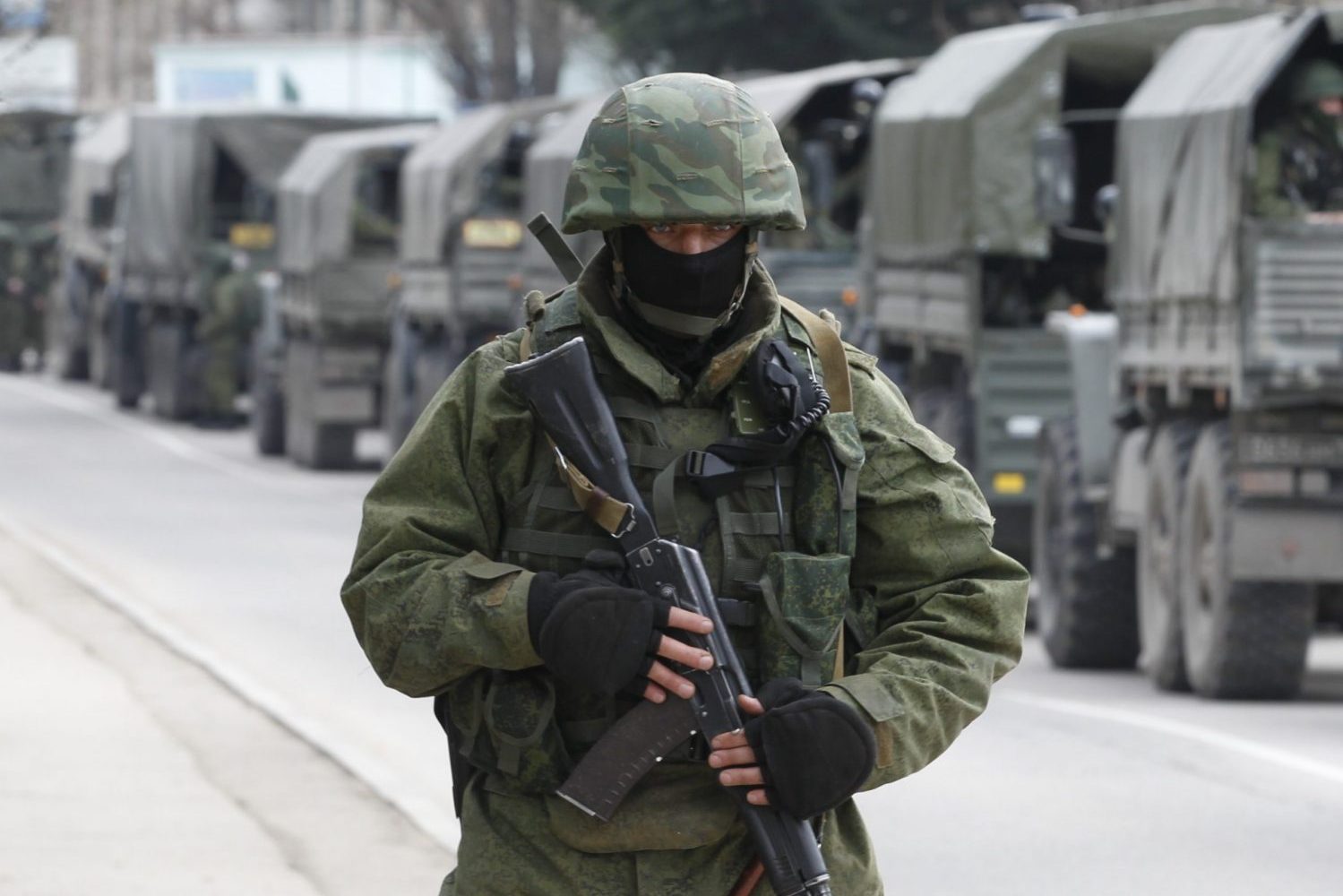US Secretary of State Mike Pompeo has marked this week’s WWII anniversary by issuing a strongly-worded statement that appears to target many of Russia’s most cherished myths relating to the conflict. The hard-hitting joint statement on the seventy-fifth anniversary of the end of the Second World War was issued by the US Secretary of State together with the foreign ministers of Bulgaria, the Czech Republic, Estonia, Hungary, Latvia, Lithuania, Poland, Romania, and Slovakia, all nations that found themselves under Kremlin control for decades following the war. The statement is highly critical of the post-war Soviet occupation of Central and Eastern Europe, and also accuses the current Russian regime of attempting to falsify history in order to whitewash Moscow’s role in both the outbreak and aftermath of WWII.
“While May 1945 brought the end of the Second World War in Europe, it did not bring freedom to all of Europe,” reads the statement. “The central and eastern part of the continent remained under the rule of communist regimes for almost 50 years. The Baltic States were illegally occupied and annexed and the iron grip over the other captive nations was enforced by the Soviet Union using overwhelming military force, repression, and ideological control. For many decades, numerous Europeans from the central and eastern part of the continent sacrificed their lives striving for freedom, as millions were deprived of their rights and fundamental freedoms, subjected to torture and forced displacement.”
This damning characterization represents a direct challenge to Moscow’s preferred version of twentieth century history. Today’s Russia has sought to portray the Red Army advance into Central and Eastern Europe of 1944-45 as a liberation from Hitler, and bristles at any attempts to equate post-war Soviet rule with the wartime Nazi occupation. This has led to frequent clashes since the end of the Cold War between Russia and the former Soviet satellites of the region as these newly independent countries have sought to remove vestiges of the Communist era and reclaim their own histories.
Stay updated
As the world watches the Russian invasion of Ukraine unfold, UkraineAlert delivers the best Atlantic Council expert insight and analysis on Ukraine twice a week directly to your inbox.
Nor is the debate purely academic. In recent weeks, Russia has reacted with fury to a decision by the municipal authorities in Prague to remove a monument to Red Army General Ivan Konev, who led the Soviet seizure of the Czech capital in 1945 and also played an important role in suppressing the Prague Spring in 1968. The incident has sparked a diplomatic spat between the two countries and led to allegations of Russian countermeasures including cyber attacks and assassinations plots.
At stake is modern Russia’s view of its status on the world stage. Russian President Vladimir Putin has placed the USSR’s WWII experience at the heart of his efforts to rebuild Russian national pride following the shame and humiliation of the Soviet collapse. He has elevated the war to the level of state religion, creating a victory cult that exploits the USSR’s staggering losses and the country’s key role in the military defeat of Hitler to rehabilitate the entire Soviet era and make sense of Russia’s troubled past.
This approach has proven remarkably successful within Russia itself. Always a major national event, the traditional Victory Day holiday on May 9 has expanded during the two decades of Putin’s reign to become by far the biggest celebration on the annual calendar. However, Putin’s victory cult has brought Russia into conflict with many of its neighbors who object to the Kremlin’s highly selective approach to WWII history.
The latest confrontation erupted in late 2019 following a European Parliament resolution blaming the 1939 Nazi-Soviet Pact for the outbreak of WWII. Putin himself led the fightback, defending the Soviet Union’s actions and calling for the soldiers of the Red Army to be honored. “These people sacrificed their lives to free Europe from the Nazis, and now they tear down monuments to them,” he commented in December. In subsequent speeches, Putin and his Kremlin colleagues sought to accuse a host of other countries, notably Poland, of collaborating with Hitler and provoking the war.
Eurasia Center events

There was further Russian outrage in January 2020 when Ukrainian President Volodymyr Zelenskyy added his voice to those claiming the Nazis and Soviets shared responsibility for the outbreak of the war. “Poles were the first to feel the consequences of the criminal collusion of the totalitarian regimes. This led to the start of WWII,” he said during a visit to Poland to mark the seventy-fifth anniversary of the liberation of Auschwitz death camp.
This week’s joint statement takes direct aim at recent Russian attempts to downplay the importance of the Nazi-Soviet Pact and otherwise rewrite history in order to avoid accountability. “The future should be based on the facts of history and justice for the victims of totalitarian regimes,” the statement reads. “We are ready for dialogue with all those interested in pursuing these principles. Manipulating the historical events that led to the Second World War and to the division of Europe in the aftermath of the war constitutes a regrettable effort to falsify history.”
The decision to issue such a detailed and critical statement on the eve of Russia’s hotly-anticipated Victory Day festivities will not go unnoticed in the Kremlin. It comes following a far more conciliatory joint statement from presidents Trump and Putin issued on April 25 to mark the anniversary of the 1945 meeting between US and Soviet troops on the River Elbe. That particular statement sparked criticism for its talk of putting aside differences, building trust, and cooperating. With this new statement, the US is standing with America’s allies in Central and Eastern Europe while sending a clear message to Moscow that Russian attempts to rewrite the past and sanitize Soviet history will not be tolerated.
Peter Dickinson is Editor of the Atlantic Council’s UkraineAlert Blog.
Further reading
The views expressed in UkraineAlert are solely those of the authors and do not necessarily reflect the views of the Atlantic Council, its staff, or its supporters.

The Eurasia Center’s mission is to enhance transatlantic cooperation in promoting stability, democratic values and prosperity in Eurasia, from Eastern Europe and Turkey in the West to the Caucasus, Russia and Central Asia in the East.
Follow us on social media
and support our work
Image: Liberator or occupier? A controversial statue of Soviet General Ivan Konev is removed from its platform in Prague. April 3, 2020. REUTERS/David W Cerny




